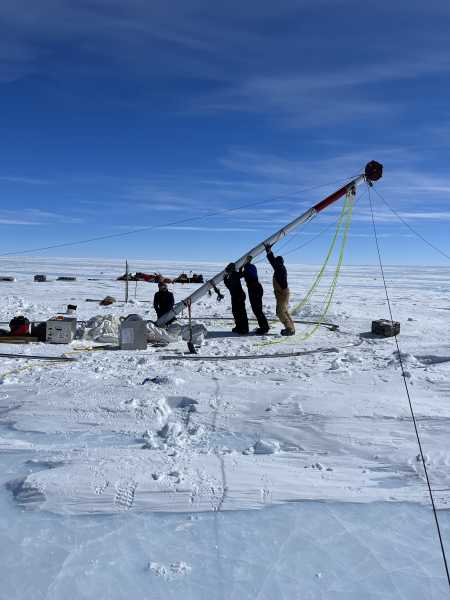
An image of the sun shining over a stormy ocean. (Photo by Gary John Norman via Getty Images)
Scientists have found that our planet's oceans are warming at an increasing rate, indicating that climate change is accelerating.
Ocean warming has more than quadrupled in the last 40 years and is likely to continue accelerating in the future, research has found. The findings were published in a new study published Tuesday (January 28) in the journal Environmental Research Letters.
The rate of sea surface temperature increase has increased from 0.1 degrees Fahrenheit (0.06 degrees Celsius) per decade in the 1980s to 0.5 degrees Fahrenheit (0.27 degrees Celsius) per decade today. The team's modeling suggests that this accelerated warming could happen again in the next two decades and accelerate even further unless we take steps to address the causes of climate change and move away from fossil fuels, the study says.
Lead author Christopher Merchant, professor of ocean and Earth observation at the University of Reading, UK, said the oceans tend to determine the rate of global warming overall, as they are the main heat sink on Earth and absorb heat from the atmosphere. This means that if ocean warming is accelerating, it indicates that climate change is also accelerating.
“Nature may behave differently next time, but on current trends, the world is warming faster than we are used to,” Merchant told Live Science in an email. “That means all the consequences are happening faster.”
Global warming is causing sea levels to rise, threatening coastal communities, contributing to more extreme weather events and drying up land, threatening our ability to produce food. Scientists warn that unchecked climate change will cause untold suffering for billions of people, threatening the survival of a third of the planet’s species.
Merchant and his colleagues used satellite data to model changes in average global ocean surface temperatures over decades. The team found a trend toward increasing warming, along with natural changes caused by events like El Niño.
Researchers have linked the accelerated ocean warming to climate change and the Earth absorbing more energy than it releases, a phenomenon known as the Earth’s energy imbalance. Greenhouse gases such as carbon dioxide (CO₂) and methane (CH4) trap heat in the atmosphere, causing the planet and then the oceans to warm. This process, along with other human actions and natural changes, is a key driver of the Earth’s energy imbalance, which has doubled in the last two decades.
Merchant added that the ocean warming trend has accelerated over the past 15 years as Earth absorbs more sunlight, as well as heat trapped by greenhouse gases. Scientists believe this increased absorption of solar energy is due to reduced cloud cover, which allows more sunlight to reach Earth’s surface. Global warming also reduces snow and ice cover, which would otherwise reflect sunlight back into space.
The study authors noted that the rate of ocean surface warming, and hence global warming, over the past four decades is not indicative of future trends, and much greater warming is expected unless climate change is effectively mitigated.
“If we want to stabilise the climate, we must redouble our efforts to achieve sustainable living without fossil fuels,” Merchant concluded. “The good news is that significant transformations are already happening around the world.”
Sourse: www.livescience.com





